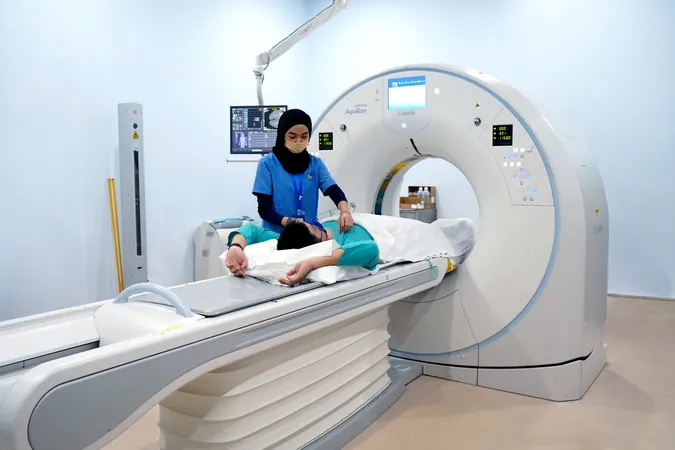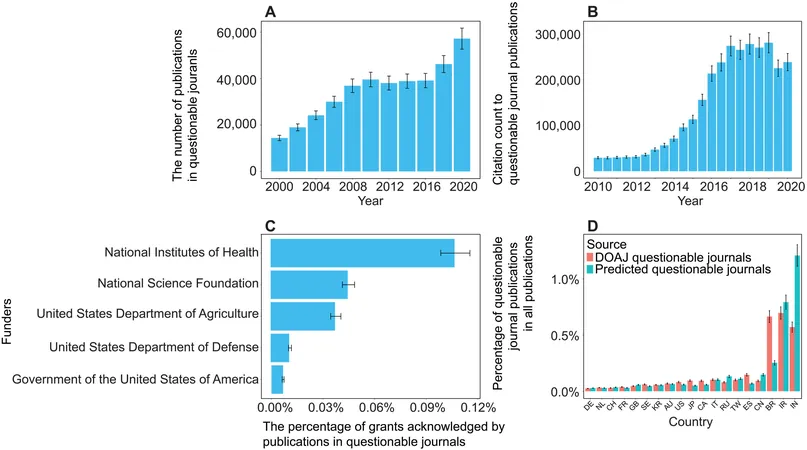
Unlocking the Secret: How the Mediterranean Diet Can Combat Dementia Risk
2025-08-25
Author: William
The Mediterranean Diet vs. Genetic Dementia Risks
A groundbreaking study has just revealed that adhering to a Mediterranean-style diet may significantly reduce the risk of dementia, especially for those predisposed due to genetics. This is a game-changer for many individuals grappling with concerns about Alzheimer’s disease and cognitive decline.
Understanding the Genetic Link to Dementia
Dementia is a complex condition intertwined with genetic, lifestyle, and environmental factors. Of note is the APOE4 gene variant: if an individual has one copy, their risk of Alzheimer's triples; having two copies escalates the danger up to twelve times! But there’s hope—this new research suggests that even the strongest genetic vulnerabilities can be countered.
Findings from a Long-Term Study
Published in the esteemed journal Nature Medicine, researchers conducted a comprehensive study over 30 years, surveying more than 4,200 women and nearly 1,500 men. They closely monitored their long-term eating patterns, genetic makeup, and cognitive health. The results were compelling! Participants who embraced a Mediterranean diet, abundant in vegetables, fruits, nuts, and whole grains while being low in red and processed meats, were not only less likely to develop dementia but also experienced a slower cognitive decline. Impressively, this effect was even more pronounced among those with two copies of the APOE4 variant.
Diet Can Influence Dementia Risk
Yuxi Liu, one of the key researchers from a Harvard-affiliated hospital, stated, “These findings emphasize that dietary strategies, particularly the Mediterranean diet, could play a crucial role in reducing cognitive decline and delaying dementia. This is particularly vital for those at heightened genetic risk.” Liu’s team aimed to explore if dietary effects varied across different genetic backgrounds and the role of blood metabolites in these processes.
Who is Affected?
Approximately 25% of individuals carry one copy of the APOE4 allele, while 2-3% have two copies. While the exact reasons this variant raises Alzheimer’s risk remain somewhat of a mystery, it is believed to interfere with the brain's management of fats, inflammation response, and the buildup of harmful amyloid plaques.
A Silver Lining: Not a Guarantee
It's crucial to note that possessing the APOE4 gene variant doesn’t guarantee the onset of Alzheimer’s. There are various factors at play, and a healthy lifestyle can make a significant difference.
Limitations and Future Research
Though the study provides valuable insights, its limitations are evident, as participants were largely well-educated and of European descent, suggesting that further research with more diverse populations is necessary. The team believes that incorporating genetic and metabolic assessments into standard Alzheimer’s risk evaluations could lead to more personalized preventative strategies. Liu expressed hopes for future research to explore how specifically targeting metabolites through dietary or other means might further protect against dementia.
Conclusion: A Dietary Approach to Dementia Prevention
This study opens up exciting avenues for dementia prevention, particularly for those at genetic risk. The Mediterranean diet not only satisfies the palate but now appears to be a potential knight in shining armor for safeguarding cognitive health!









 Brasil (PT)
Brasil (PT)
 Canada (EN)
Canada (EN)
 Chile (ES)
Chile (ES)
 Česko (CS)
Česko (CS)
 대한민국 (KO)
대한민국 (KO)
 España (ES)
España (ES)
 France (FR)
France (FR)
 Hong Kong (EN)
Hong Kong (EN)
 Italia (IT)
Italia (IT)
 日本 (JA)
日本 (JA)
 Magyarország (HU)
Magyarország (HU)
 Norge (NO)
Norge (NO)
 Polska (PL)
Polska (PL)
 Schweiz (DE)
Schweiz (DE)
 Singapore (EN)
Singapore (EN)
 Sverige (SV)
Sverige (SV)
 Suomi (FI)
Suomi (FI)
 Türkiye (TR)
Türkiye (TR)
 الإمارات العربية المتحدة (AR)
الإمارات العربية المتحدة (AR)